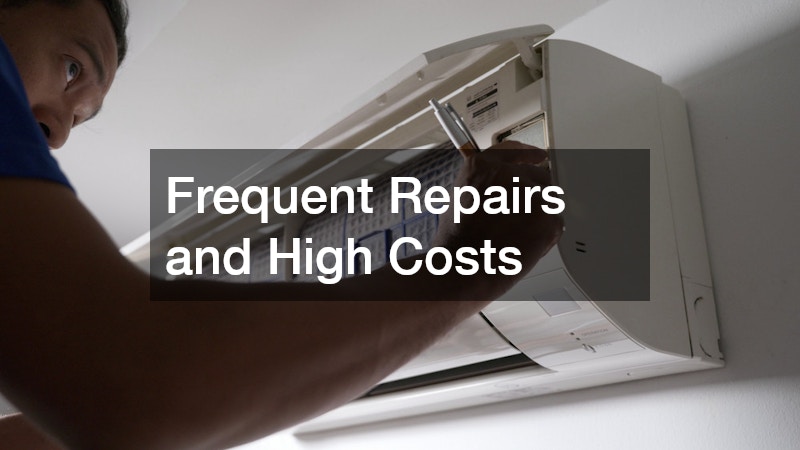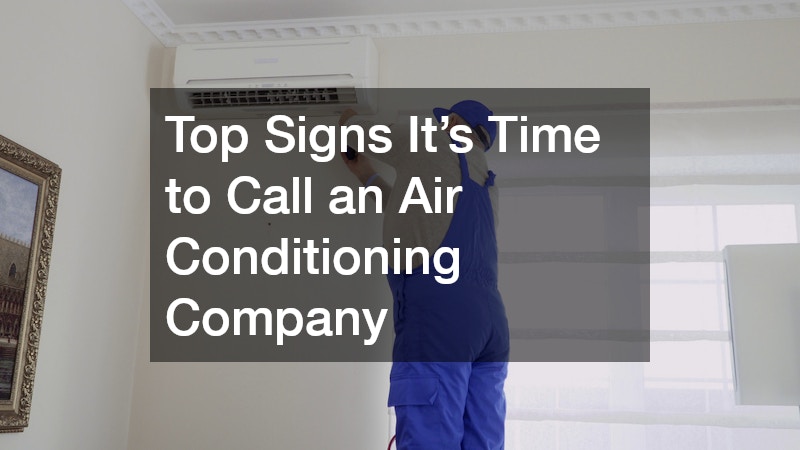As temperatures rise, a well-functioning air conditioning system becomes essential. Understanding when to call an air conditioning company can save you from discomfort and high repair costs. This article explores the top signs indicating it’s time for professional assistance.
Unusual Noises and Odors
It is common for air conditioners to make some noise, but unusual sounds like grinding, squealing, or banging can indicate mechanical issues. Strange odors every time the unit is turned on might suggest mold growth or burned-out wire insulation. Identifying these warning signs early can help you avoid more extensive damage.
Ignoring persistent noises can lead to complete system breakdowns, which are more costly to repair. Similarly, continuous unpleasant smells might suggest duct issues or biological growth within the unit. Consulting a professional at the first sign of these issues can provide peace of mind and prevent more significant problems.
Increased Energy Bills
If you’ve noticed a spike in your energy bills without increased usage, your air conditioner might be the culprit. Systems working inefficiently consume more energy, transferring the cost to your utility bills. Early detection of performance issues can translate into significant financial savings.
Leaking refrigerant, blocked airflow, and malfunctioning components can all lead to excessive energy consumption. Regular energy monitoring can alert you to these problems before they escalate. Addressing inefficiencies promptly helps maintain the system’s optimal performance.
Inefficient Cooling and Humidity Control
A primary function of air conditioners is to regulate indoor temperatures and humidity levels efficiently. If your rooms are not cooling evenly or the humidity remains high, there might be an underlying problem. Causes can range from faulty thermostats to clogged filters.
Imbalanced cooling often occurs when components wear out, reducing overall system performance. Similarly, a malfunctioning air conditioner might fail to dehumidify, leading to an uncomfortable indoor environment. Early intervention is crucial to restore comfort and prevent a domino effect of damage.
Regular Filter Replacement
Air filters play a vital role in maintaining your air conditioning system’s efficiency. Over time, filters accumulate dust and debris, hindering airflow and forcing the system to work harder. Replacing filters regularly ensures cleaner air and optimal system performance.
A clogged filter not only affects air quality but can also lead to system failure due to increased operational strain. Regular filter checks and replacements are essential parts of routine maintenance. Ensuring filters are changed every 1-3 months can extend the lifetime of the unit.
Cleaning Coils and Inspecting Ducts
The efficiency of your air conditioning system is greatly impacted by the cleanliness of its coils and ducts. Over time, the evaporator and condenser coils accumulate dirt, reducing their ability to absorb heat. Keeping coils clean ensures better energy performance and prevents excessive wear.
Dirty ducts can circulate allergens and impede airflow, while clean ducts ensure healthy air quality and efficient cooling. Regular cleaning prevents potential health risks associated with dust and microbial growth. Professionals are equipped to clean, inspect, and seal ducts to maintain system integrity.
The Role of Professional Tune-Ups
Professional tune-ups are essential for the longevity and efficiency of your air conditioning unit. Routine check-ups by skilled technicians can identify wear and tear before it leads to serious issues. This preventative measure keeps the unit performing consistently while prolonging its lifespan.
Tune-ups provide a thorough evaluation of the system, ensuring everything from electrical connections to refrigerant levels is optimal. These inspections often involve cleaning, tightening, and lubricating essential components. Professionals can forecast and prevent costly breakdowns through regular assessments.
Frequent Repairs and High Costs
If your air conditioning system requires recurrent repairs, it may be more economical to replace it. Continuing to invest in repairs can surpass the cost of a new unit over time. Assessing the overall repair costs can guide you in making a replacement decision.
High repair bills are indicative of a system that is beyond its prime. Frequent issues with components can suggest that the system is working harder than intended. Financially, replacing a consistently faulty unit reduces stress and prevents unexpected repair expenses.
Age of the Unit
The average lifespan of an air conditioning unit is between 10-15 years. As units age, their efficiency decreases, leading to higher energy consumption and insufficient cooling. Recognizing the limitations of an older system can inform timely replacement.
Aging systems are more prone to breakdowns due to worn-out parts and outdated technology. Upgrading to a new model can save on energy costs and offer more robust features. Homeowners should consider age as a significant factor when evaluating air conditioner effectiveness.
New Efficiency Standards
Advancements in air conditioning technology make newer models more energy-efficient and environmentally friendly. Updated efficiency standards help reduce environmental impact and decrease energy bills. Evaluating these benefits is crucial when considering a new purchase.
Recognizing the signs that indicate it’s time to call an air conditioning company can prevent further issues and ensure comfort. Whether it’s understanding repair needs, the importance of maintenance, or knowing when to replace your unit, keeping informed will help maintain efficient and effective cooling.



